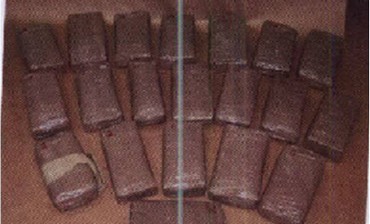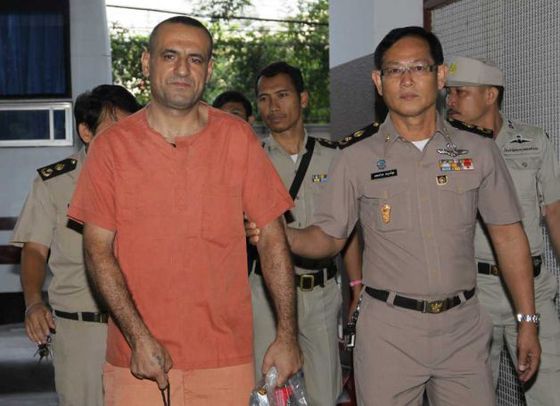The European Union yesterday announced that it had reached a unanimous decision to designate the so-called military wing of Hezbollah as a terror organization. Hezbollah’s role in the July 2012 Burgas terror attack as well as the recent conviction of Hezbollah operative Hossam Taleb Yaacoub in Cyprus are viewed as two of the key pieces of evidence that pushed forward the long-awaited designation. Hezbollah’s continued involvement in the Syrian civil war in support of the Assad regime is also seen as a reason for the move.
In a new report released today, the Israeli daily Haaretz detailed the “lengthy diplomatic, legal and intelligence campaign waged jointly by Israel, Britain, the United States, the Netherlands and Canada” that led to the designation. With regard to the Burgas investigation, the report regurgitates much of what has been known, but it also provides new details further implicating Hezbollah in the attack.
The smoking gun, though, was the bomb’s composition, including the specific type of plastic explosive used – which proved identical to the composition of 24 bombs discovered by Israeli security services in Nazareth in August 2012. These bombs had been smuggled into the country at Hezbollah’s behest by a group of drug smugglers. Later, the bomb’s composition also proved an exact match to bombs discovered by Thailand’s security services in January 2012, at a warehouse owned by a Hezbollah operative in Bangkok.
On Aug. 8, 2012, Israeli authorities announced that Hezbollah had used networks of drug dealers to smuggle explosives into Israeli territory from Lebanon. According to the Shin Bet, the network managed to smuggle into Israel 20 kilograms of C4 explosive in June, a month before the Burgas attack. Authorities, who moved in once the explosives were transferred from Ghajar to Nazareth, believed the explosives were intended to be used for attacks in Israel.
“[T]he attempted attack here and the recent attack in Bulgaria are all carried out by the same organization,” a Shin Bet official said at the time.
Months prior to the Hezbollah smuggling operation and the Burgas attack, authorities in Thailand discovered a large quantity of bomb-making materials in a three-storey commercial building. Authorities were led to the complex by Atris Hussein, a Swedish-Lebanese dual national, who is suspected of being tied to Hezbollah.
Hussein, who was born in southern Lebanon and married a Swedish woman, has denied having a connection to the Iranian-backed terror group.
Thai authorities have previously alleged that Hussein said the explosive materials were not intended for use in Thailand, but were going to be shipped “concealed inside table fan boxes and shipped to other countries,” the Bangkok Post reported.
Are you a dedicated reader of FDD's Long War Journal? Has our research benefitted you or your team over the years? Support our independent reporting and analysis today by considering a one-time or monthly donation. Thanks for reading! You can make a tax-deductible donation here.









